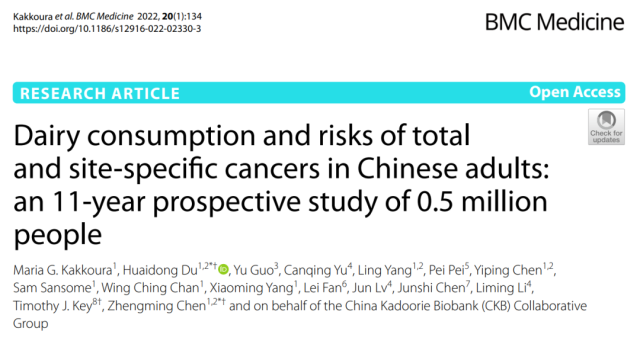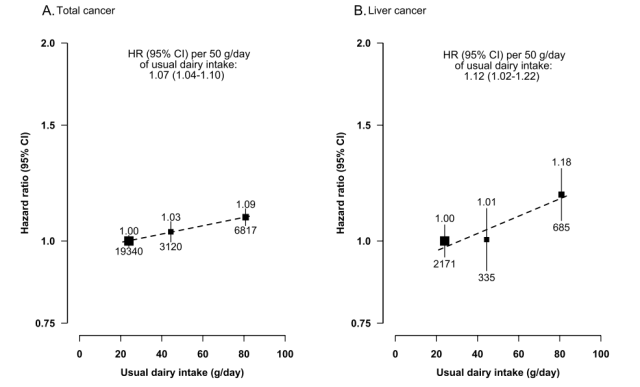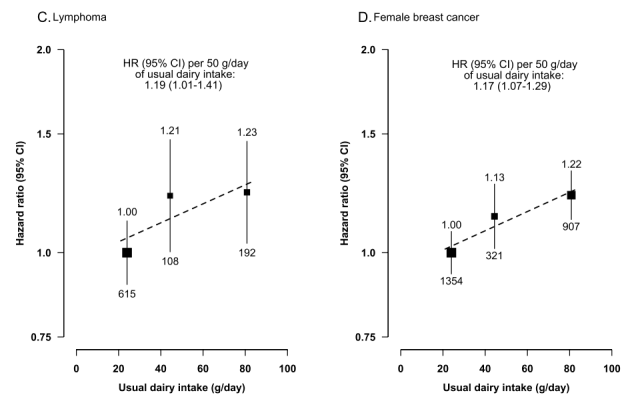Regular milk consumption is associated with increased risk of cancer in China
- Normal Liver Cells Found to Promote Cancer Metastasis to the Liver
- Nearly 80% Complete Remission: Breakthrough in ADC Anti-Tumor Treatment
- Vaccination Against Common Diseases May Prevent Dementia!
- New Alzheimer’s Disease (AD) Diagnosis and Staging Criteria
- Breakthrough in Alzheimer’s Disease: New Nasal Spray Halts Cognitive Decline by Targeting Toxic Protein
- Can the Tap Water at the Paris Olympics be Drunk Directly?
Regular milk consumption is associated with increased risk of cancer in China
- Should China be held legally responsible for the US’s $18 trillion COVID losses?
- CT Radiation Exposure Linked to Blood Cancer in Children and Adolescents
- FDA has mandated a top-level black box warning for all marketed CAR-T therapies
- Can people with high blood pressure eat peanuts?
- What is the difference between dopamine and dobutamine?
- How long can the patient live after heart stent surgery?
Regular milk consumption is associated with increased risk of cancer in China.
Large-scale study reveals that regular milk consumption is associated with increased risk of cancer in Chinese, especially liver cancer and breast cancer.
On May 6, 2022, researchers from the University of Oxford , the Chinese Academy of Medical Sciences and Peking University collaborated to publish a paper titled: Dairy consumption and risks of total and site-specific cancers in Chinese adults: an 11-year in BMC Medicine Research papers of prospective study of 0.5 million people .
The study, which followed more than 510,000 Chinese for an average of up to 11 years, found that among Chinese adults, higher dairy intake was associated with a higher risk of liver cancer and breast cancer in women.

Using data collected from 510,146 Chinese adults from the China Kadoorie Biobank Prospective Study, the research team analyzed the relationship between dairy intake and cancer risk .
The study recruited volunteers aged 30-79 years from 2004-2008 from 10 different regions (5 urban and 5 rural) across the country. The 10 regions were chosen to cover a broad range of risk factors and disease patterns, with 97% of participants being Han Chinese, 59% female, and 44% living in rural areas.
Trained medical professionals collected information on the frequency of consumption of major food groups, including dairy, as well as their sociodemographic characteristics, disease history, and lifestyle, from participants through questionnaires at specially established local sites.
Among the more than 510,000 people included in this study, 20.4% regularly consume dairy products (at least once a week) , 68.5% never or rarely consume dairy products, and the average dairy consumption of the population is 37.9 grams, while the average consumption of regular eaters was 80.8 grams per day.
During a mean follow-up period of 10.8 years, a total of 29,277 cancer cases between the ages of 35 and 79 were recorded.
The data included age, region, education level, household income, smoking, alcohol consumption, physical activity, family history of cancer, body mass index (BMI) , soy and fresh fruit intake, and chronic hepatitis B virus infection (for liver cancer) .
After adjusting for a series of factors that could lead to confounding effects, the researchers found that dairy intake was significantly and positively associated with cancer risk :
- Regular consumption of dairy products increased the overall risk of cancer by 9%, the risk of liver cancer by 18%, and the risk of breast cancer in women by 22%.
- For every 50 grams of dairy products consumed per day, the risk of overall cancer, liver cancer and breast cancer in women increased by 7%, 12% and 17%, respectively.
- Regular consumption of dairy products had a 23% increased risk of lymphoma , but this association lost statistical significance after adjustment for multiple testing.
- The study did not find a significant association between dairy intake and the risk of colorectal, prostate or other types of cancer.


“Our study is the first and largest study to date on the relationship between dairy intake and cancer risk in the Chinese population ,” said Dr. Huaidong Du , the corresponding author of the study . To date, the overall evidence on whether dairy consumption affects cancer risk has been inconsistent globally.
In China, dairy consumption is much lower than in Europe and North America, and the types of dairy products people typically consume are slightly different.
For example, the consumption of dairy products in China is mainly milk , while the consumption of cheese and butter is very low.
In addition, most Chinese are lactose intolerant (cannot produce enough lactase to break down and digest lactose in milk) and cannot metabolize dairy products well.
Therefore, it is important to study the association between dairy product intake and cancer risk in the Chinese population.
The authors also caution that the study has certain limitations, including that the number of cancer cases may not be large enough to allow reliable statistical analysis of some less common cancer types (such as lymphoma and prostate cancer) .
The study was an observational study rather than a randomized controlled trial, so the observed association cannot be used to establish a causal relationship between dairy intake and cancer risk. Further research is needed in the future to explore causality and the underlying underlying mechanisms.
The authors also said that while these findings suggest a possible direct link between regular consumption of dairy products and some cancers, it is important to be aware that dairy products contain proteins, vitamins and minerals that are important for health. It is not wise to limit dairy intake based solely on the results of current research.
Paper link :
https://bmcmedicine.biomedcentral.com/articles/10.1186/s12916-022-02330-3
Regular milk consumption is associated with increased risk of cancer in China.
(source:internet, reference only)
Disclaimer of medicaltrend.org
Important Note: The information provided is for informational purposes only and should not be considered as medical advice.



